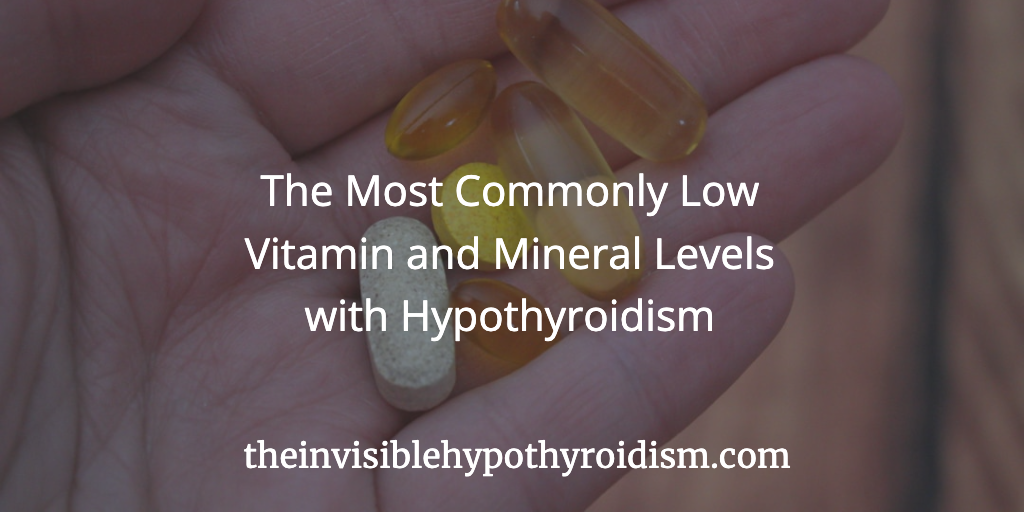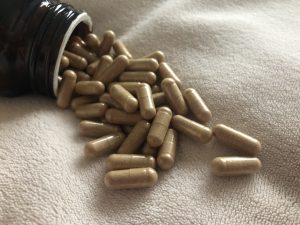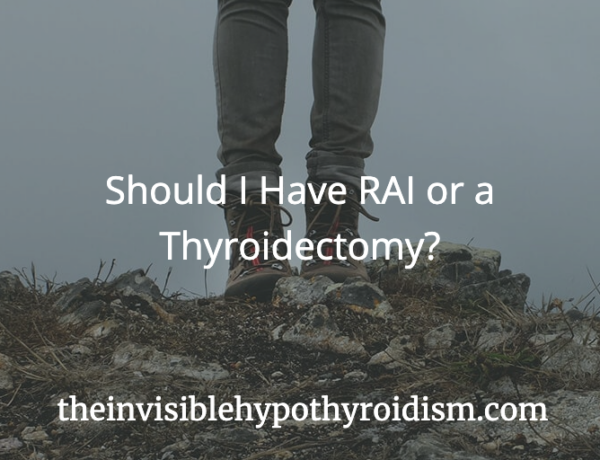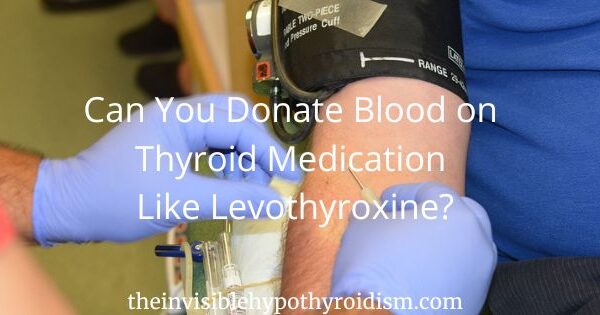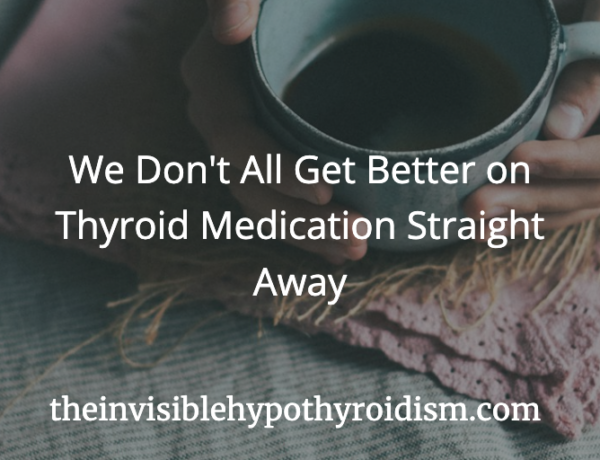Originally published on 10th July 2018 Last updated on 22nd March 2024
There are certain low vitamin and mineral levels that commonly exist alongside hypothyroidism and Hashimoto’s.
It may be tied in to your diet or gut health and how well you absorb certain vitamins and nutrients, as problems with intestinal permeability can lead to numerous deficiencies.
Below are the most common vitamin and mineral deficiencies that I suggest you check out if you’re still feeling unwell, even on thyroid medication, and especially if optimally medicated.
You can also find a list of possible supplements that may benefit you here, but please do not supplement unless you’ve confirmed low or deficient levels. Taking any supplements you do not need can be dangerous, so consult your doctor or pharmacist first.
The nutrients mentioned below are either water soluble (not stored in the body and any excess is lost immediately through urine) or fat soluble (can be stored in the body). For fat soluble vitamins, you need to consume fat in order to absorb them and get the benefits.
Iron and Ferritin
Perhaps the most common in thyroid patients are low levels of iron, or ferritin (stored iron), which can lead to dry and itchy skin, heavy fatigue, poor stamina, heart palpitations, depression and even pale skin and dark eye bags.
I’ve been anaemic or low in iron a lot and it presented with all of these signs. Iron deficiency also impairs thyroid hormone synthesis. [1]
It is worth bearing in mind that as hypothyroidism mainly affects women, many thyroid patients will have low levels of iron / ferritin due to period issues such as heavy or long periods.
Iron is central to the production of both red blood cells and thyroid stimulating hormone (TSH). Iron is also important for your thyroid health as it makes the hormone T4, and converts T4 to T3. [2], [3]
Always have your levels of this mineral tested before taking a supplement, as taking more iron than your body needs can be dangerous.
Bisglycinate is a popular type of iron as it doesn’t cause stomach issues or constipation.
Taking Vitamin C with iron triples the absorption rate.
Selenium
Selenium is not naturally occurring in the body, but is a trace mineral found in food and soil. It is vital for the immune system, reproduction and thyroid function, including conversion of thyroid hormone T4 to T3, making it essential for good metabolic function. It is also an antioxidant.
With low selenium levels, you could have symptoms such as brain fog and decreased cognitive functions, as well as a lack of energy and blood results that look ‘OK’, even if you feel unwell. You could also have low Free T3 as a sign that selenium is low or deficient, causing not enough T4 to T3 conversion.
Selenium is also reported to lower thyroid antibodies, helping to manage Hashimoto’s more effectively. [4]
It can be found online or in health stores.
B12
Being low in B12 can cause tiredness, fatigue, a sluggish metabolism and poor adrenal health. Vitamin B12 is important for energy and heart protection.
B12 is also needed in order to make TSH, a hormone secreted by the pituitary gland that instructs the thyroid on how much thyroid hormone to make.
People with hypothyroidism seem to struggle to absorb B12 and low levels in it can cause mental illness, various neurological disorders, neuralgia, neuritis and bursitis.
Poor gut health could well be behind why so many of us have low levels. Vegan and vegetarian diets also pose more risk and taking excessive amounts of Vitamin C can also decrease the availability of B12.
You can find this supplement online rather easily.
Folate
Vitamin B6, also known as Folate, can cause symptoms such as fatigue, muscle weakness, pins and needles, mouth ulcers, a sore tongue, low mood and brain fog if it is low.
The body should convert folic acid into L-methyl folate, the form that your body can use. However, hypothyroidism may decrease the body’s ability to do this, via a decreases in the activity of methylenetetrahydrofolate reductase, an enzyme that helps make L-methyl folate. What does this mean?
Because of this, thyroid patients (and I was told this by my doctor while pregnant, when the need for folate is greater), take the active form of folate, known as L-methyl folate (5-MTHF). If you need to take folate to support your fertility or pregnancy, then many pregnancy prenatals include folate as L-methyl folate as standard, now.
Vitamin D
Low Vitamin D levels seem to be very common, not just among thyroid patients but the general population as a whole. Low levels in this vitamin can cause depression, back pain, joint pain and stiffness, fatigue and poor immune system function.
A Vitamin D deficiency can also stop T3 from activating your cell to increase metabolic rate (cold intolerance, low energy and weight gain). Vitamin D has also been shown to lower thyroid antibodies. [5]
A popular vitamin D supplement can be seen here. It should always be taken with Vitamin K2.
This is because Vitamin D3 improves calcium absorption across the GI tract and Vitamin K2 is needed to transfer calcium into your bones and not your arteries. [6]
Vitamin K2 regulates calcium in the blood, so combining Vitamin K2 with Vitamin D3 is often recommended because of the synergy between the two vitamins. Research shows a slower progression of calcification in those taking both vitamin K2 and vitamin D compared to those taking vitamin D alone. [7]
Vitamin A
Vitamin A is fat soluble. Vitamin A deficiency can stop T3 from activating your cell to increase metabolic rate and energy levels but it is also important for good immune system function. It keeps mucous and skin membranes healthy.
Vitamin A must be accompanied by protein to make it available to the body, so if you are on a low protein diet, you may be deficient in this. If you are low in Vitamin A, your ability to produce TSH is limited. This vitamin is also required by the body to convert T4 to T3.
However, it is toxic in large amounts and pregnant women are even advised again consuming liver pate due to high amounts of Vitamin A contained in it and its links with birth defects. Always consult your doctor.
Vitamin E
An antioxidant, vitamin E is a fat-soluble vitamin important for many processes in the body, including producing TSH. It is also important for the skin and is good for high blood sugar levels (blood sugar imbalances are common with autoimmune hypothyroidism).
One example: Vitamin E Capsules.
Zinc
The mineral Zinc is needed for making TSH, a hormone produced by the pituitary to instruct the thyroid gland in making thyroid hormone. It also plays a role in the functioning of the immune system, fertility, mental health, would healing and the conversion of T4 to T3.
This trace mineral may even be good for gut health (handy if you’re working on improving your gut health as part of the wider thyroid jigsaw puzzle), as it may help to tighten the intestinal junctions of those with ‘increased intestinal permeability‘.
Magnesium
The mineral Magnesium is needed in order to make TSH and for the conversion of T4 into T3.
It seems that a diet high in refined food and caffeine can encourage magnesium loss, even though the number one source of magnesium in a Brit’s diet is tea, for example!
Supplementing magnesium can help cramps, constipation, energy and aches and pains, which are all common symptoms of hypothyroidism.
Magnesium Malate and Chelate seem to be the most popular among thyroid patients, so I’ve provided a link to Magnesium Malate here: Magnesium Malate
Iodine
Without question, iodine is the most controversial mineral when it comes to thyroid health. Some say to supplement, others say not to.
It is required by the thyroid gland in order to make the thyroid hormone T4, so not enough iodine can actually cause hypothyroidism. However, too much iodine can also cause or worsen thyroid issues!
The right amount of iodine is required for the normal process of metabolisation of cells and is needed for a normally functioning thyroid – the production mechanisms of thyroid hormones. You can present with a goitre if you’re lacking in iodine due to thyroid cells enlarging.
For anyone who wants to try supplementing iodine, it is first recommended to have your levels tested, and then if it shows you’re iodine deficient, to start with a small dosage.
Please note that most people obtain enough iodine from their diet and therefore do not need to supplement. Always test levels first.
You can also find a list of recommended supplements to think about here, but please do not supplement unless you’ve confirmed low or deficient levels. Doing so can do more harm than good and you should always consult your doctor first.
Is there one really good multivitamin that incorporate all that’s needed in effective doses?
We’re often advised against multivitamins, as the amount of each vitamin contained in them is usually so small, that it doesn’t do an awful lot. Or we’re told to avoid them because different vitamins can cancel each other out when taken together (or affect each other’s absorption).
However, my functional medicine practitioner had me take a pregnancy multivitamin which she said were the best kind to take if you have to (i.e. due to finances).
Have you had these vitamin and mineral levels tested?
References:
[1] https://pubmed.ncbi.nlm.nih.gov/12487769/
[2] https://www.ncbi.nlm.nih.gov/pubmed/30208979
[3] https://www.ncbi.nlm.nih.gov/pubmed/16602928
[4] https://www.ncbi.nlm.nih.gov/pubmed/11932302
[5] https://www.ncbi.nlm.nih.gov/pubmed/27186560
[6] https://articles.mercola.com/sites/articles/archive/2011/03/26/the-delicate-dance-between-vitamins-d-and-k.aspx
[7] https://www.healthline.com/health/calcification

